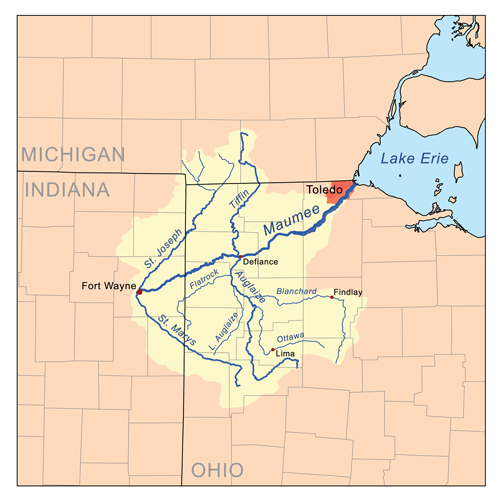Originally Posted By: hattaresguy
Sounds like Toledo has horrible runoff control.
Around here the only ponds that turn green are usually on golf courses but generally we have pretty good runoff and fertilizer control.
Drinking water is unthinkable, the water companies in CT own most of the watershed areas and keep it clean. Water is never a problem here.
it's Not just Toledo. Almost all of the Rivers in NW OH, and NE IN, not to Mention a Portion of S MI, drain into Lake Erie via the
Maumee River
The Lighter area in that Map is the Maumee watershed, 2/3 of which is farmland.
From the Maumee River Wikipedia page (linked above)
"The Maumee watershed is Ohio’s breadbasket, two-thirds farmland, mostly corn and soybeans. By 2012, agricultural practices along the Maumee River were responsible for phosphate levels in Lake Erie that cause yearly, deadly algae blooms in the lake, which in turn greatly threaten the lake's ecosystem. The Maumee supplies only about 5 percent of Erie’s water, but half its phosphorus. And while algae struggle to digest ordinary phosphorus — only about 30 percent gets taken up — fertilizer phosphorus is designed for plants to use instantly."

